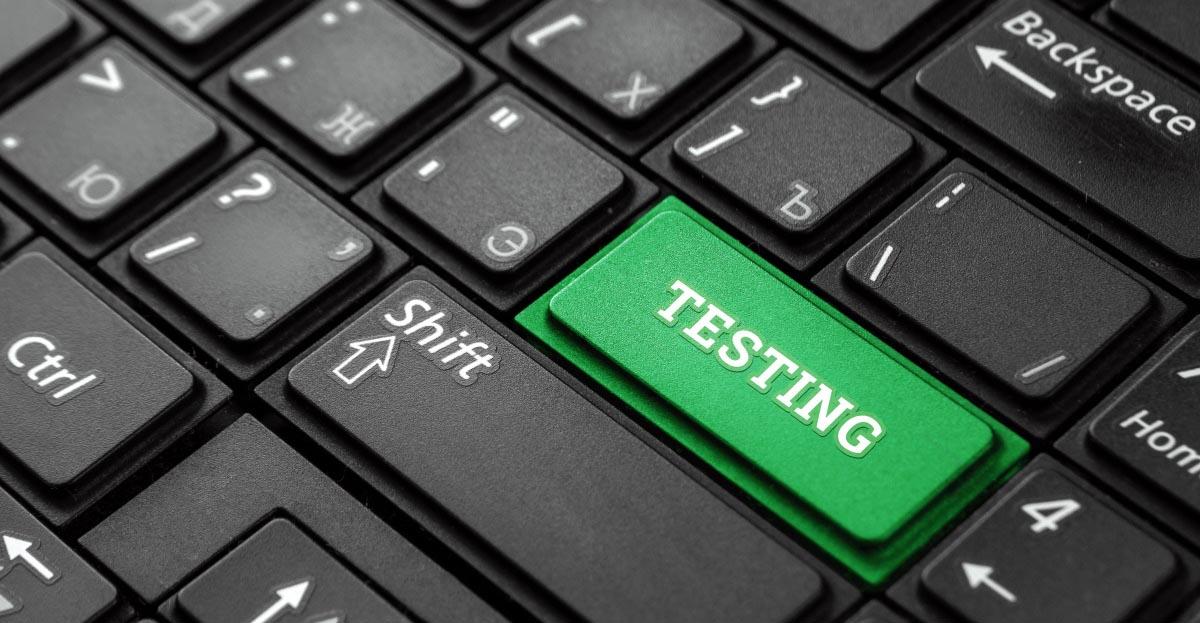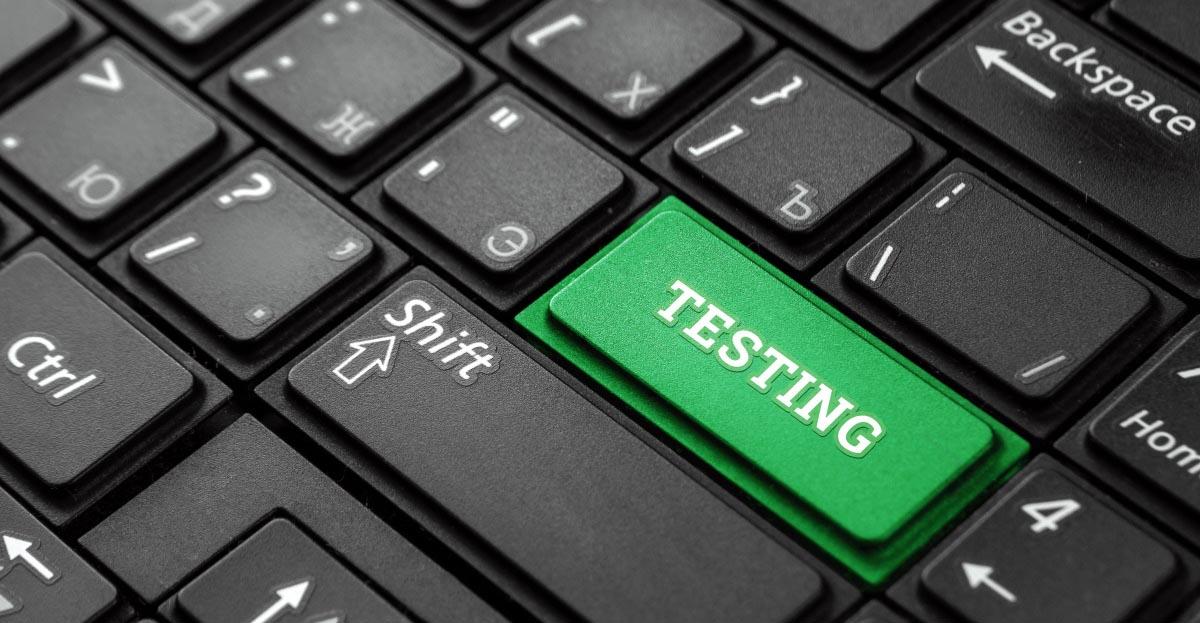TESTING PROFESSION - HOW TO RESKILL?
Do you want to get a job as a tester? It must take a while from the decision to gaining experience. Fortunately, becoming a software tester is probably one of the shortest routes into the IT industry. See what is required in the testing profession and what the rebranding process might look like!
From the article you will learn:
- for whom the testing profession is,
- whether it is worth becoming a software tester,
- what soft skills are needed in the profession of a software tester,
- what hard skills a tester must have,
- how to change your profession and become a tester,
- which industries are very often looking for software testers.
To begin with, we will add one more piece of information - the profession of a tester does not require programming skills (although, at some point you may feel like it did). However, a software tester must be able to cooperate with programmers. After all, it is the result of their work that he tests.
Read also: Software testing - what the job of a tester looks like and learning testing from scratch.
THE PROFESSION OF A TESTER - FROM THINKING TO DOING
The decision to change an industry is not easy. Many thoughts are swirling around in your head that want to postpone the change or make you give up on it altogether. Do you know what is most important then? The realisation that this uncertainty is NORMAL!
It's also worth knowing that if:
- you feel you are a humanist, then... you can become a tester,
- you have never had any programming experience before, then... you can become a tester,
- you have worked in a completely different industry for many years, then... you can become a tester,
- If you have doubts about your ability, you can become a tester.
The last point in the above shortlist is crucial here - a software tester must have doubts. This way he/she will accurately perform all the tests and find all the vulnerabilities in the code and application performance.
The rest is a matter of your motivation and practical training that will prepare you to enter the market.
SOFTWARE TESTER - IS IT WORTH BECOMING ONE?
From our point of view, the whole IT industry is a world worth looking into. An element of this world is a software tester. So is it worth becoming one? Logic suggests yes.
But maybe we will start differently... Why do you even think that the profession of a software tester is something worth thinking about, something worth going into? Unfortunately, we won't answer this question for you. However, we can list some arguments that will help you decide if you want to choose the testing profession.
- Quick return on investment - after completing our course (which is the shortest of all the courses anyway), you will take the ISTQB certification, which confirms your readiness for work.
- Constant development and learning new things - this job never gets boring. Every project is different, all tests look a bit different.
- Visible effects of work - maybe not right away (programmers have to introduce your changes), but you see that your work makes sense. After all, thanks to your attentiveness, accuracy and perceptiveness, something works better.
- Financial stability - a good tester means a good salary. And these, there is no denying, are quite common to the IT industry (the one that has been developing even despite the pandemic!). According to data from Glassdoor.com, the average gross salary for a tester is €53,766 / yr.
- Remote work - of course, it depends on the company you start working for but generally it is the results that count, not the hours spent in the office. That is why it is much more common to work from home in this profession. Or from any other place on the planet.
- Career path - you don't just move up the ladder from junior to senior. You also get to develop your competencies with automation tests. And in the final stage, when the experience gained exceeds even your wildest expectations, you may have the opportunity to build your testing team!
- There is a lot more to it than just the slogan saying that the "tester is the profession of the future"!
If you still have doubts, maybe you will be convinced by the story of our graduate. Karol changed his life and replaced his military uniform with a profession of a tester in an international telecommunications company.
WHAT SOFT SKILLS DO YOU NEED TO BECOME A TESTER?
Now let's go over what you need to think about changing careers to become a tester, and then answer the question: how to become a tester.
The profession of a tester requires:
- Accuracy - you need to be sure that the test has covered all the elements and nothing will surprise anyone anymore,
- Patience - because you often test one thing several times, in different versions, at many different stages of a project,
- Communication skills - software testing is a team effort. You will work with developers, customers and many departments in your company,
- Assertiveness - because you will work with many people, each of whom will want to achieve a different result,
- Ability to understand the user's actions - yes, testing draws heavily on psychology, because your job is to get into the mind of a potential user and follow paths in the application or on the website where someone might get lost.
- Interest in technological novelties is welcome among testers. Why? Because you may find yourself testing them. With a basic knowledge of the subject, it will undoubtedly be easier for you. But don't worry - this fascination may also come with time as you get oriented in the industry.
HARD SKILLS USEFUL IN THE PROFESSION OF A SOFTWARE TESTER
The testing profession relies heavily on soft skills. However, this does not mean that hard skills are completely abandoned. No, it does not! And importantly, these hard requirements, well, they largely accompany your everyday life. The hard skills needed for the software testing profession include:
- Computer and internet skills - if you're not terrified of turning on your hardware and firing up a browser, you're already well on your way to being a tester,
- Language skills - well, at least English, because project documentation is often written in it. In addition, as you will notice, programming languages are also based on English commands. Many resources, conferences and educational materials are also written in this language. Thanks to your knowledge of English it will be easier for you to update your knowledge and develop regularly.
- Theoretically, we could add a point related to education to this list. We could, if... it mattered. And it doesn't. It doesn't matter if you're a humanist or a biologist. It doesn't matter if you just got your high school diploma or if you've been working for 30 years. Our Manual Tester course can prepare anyone for the testing profession.
These are the facts.
TESTING PROFESSION - HOW TO START?
You already know who can become a software tester. You also know what soft and hard skills are expected for this position. But how to start working in this profession? Special schools, tutorials?
We already have an answer! You can learn the tester profession through self-study, post-graduate studies or specialised courses.
The problem is that self-study can take ages, while post-graduate studies take at least one year. Do you want to wait that long without being sure if it will pay off? Well...
MANUAL TESTER - SPECIALIST COURSE AT CODERS LAB
Probably the fastest return on investment is guaranteed by a specialised course. In our offer, it is the shortest and the most intensive workshop. Are you wondering why?
It's simple - we want you to be prepared to work in the industry right away and find a job very quickly. Karol did it 10 days after completing the classes! That's why, after the course, you pass the exam and receive an international ISTQB certificate confirming your skills.
We'll write it again. Even during the course, you can look for a job in your new profession! And the course in a weekend mode lasts only 6 weeks.
Check out the Manual Tester course.
TESTER PROFESSION - WHAT’S NEXT?
During or after the course, you will have to:
- Send out your CV - make it stand out in the crowd.
- Participating in interviews - it's a good idea to prepare answers to the most popular questions from recruiters to feel more confident in a rather stressful situation.
COMPANIES THAT NEED SOFTWARE TESTERS
In a world that is increasingly based on more and more technological products, a tester is more than needed. And thanks to that you can look for a job in many exciting companies. And we are not just talking about software houses here.
You can also choose from any organisation related to:
- finance,
- new technologies,
- telecommunications,
- computer games,
- banking,
- etc.
The opportunities are so broad because many companies, regardless of industry, have IT departments. Testers take part in the introduction of new solutions or mobile applications. They test their performance and together with developers release the best possible product to the market.
This diversity of industries allows you to find out what you are most comfortable with and specialise in! After some time, this will be your significant advantage. Especially if you get some training and become an automation tester in the meantime.
THE PROFESSION OF SOFTWARE TESTER - SUMMARY
As you can see, it does not take long to become a tester. 6 weeks? That’s less than two months! But you will see the benefits of this investment for years - in your life and your wallet.

